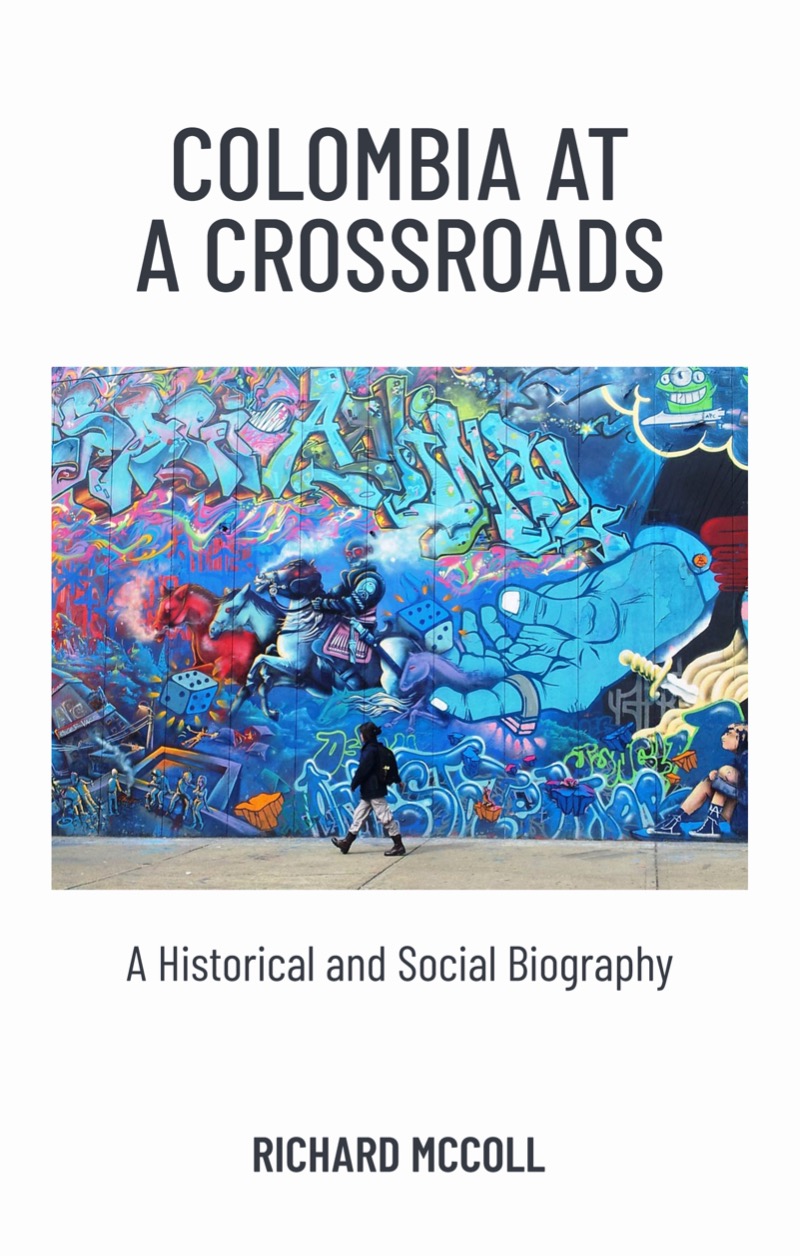
Colombia at a Crossroads: A Historical and Social Biography
| Autor: | McColl, Richard |
Materia:986 - Historia de Colombia y Ecuador
Clasificación Thema::J - Sociedad y ciencias sociales
NH - Historia
Público objetivo:General / adultos
Disponibilidad:Disponible
Estatus en catálogo:Próxima aparición
Publicado:2024-05-17
Número de edición:1
Número de páginas:300
Tamaño:17x24cm.
Precio:$65.000
Encuadernación:Tapa blanda o bolsillo
Soporte:Impreso
Idioma:Inglés
Libros relacionados
La Gran Colombia. Francisco de Paula Santander y Juan Nepomuceno Moreno - Rivadeneira Vargas, Antonio José
Las Tropeleras de Guadalupe - Lamus Obregón, Hernando
Historia del Partido Comunista de Colombia Tomo II - Buenaventura Alder, Nicolas; Medina, Medófilo
El Batallón Salamina - Hoyos Korbel, Pedro Felipe
Reseña
The aim of this book is not only to focus on Colombia’s problems, politics and history, but also to celebrate her culture and society and that’s is the reason it’s divided into several parts and includes contributed essays by experts in their fields. This is not a guide book, nor a travelogue and nor is it a list of dry facts.
Writing this has been a multi-year challenge and the hope is to create something which is more of a summary of Colombia, something with a pulse. There will be absences and facts overlooked which are of importance to some and of less note to others, but for this, the recommended reading – despite its age - is David Bushnell’s unrivalled: The Making of Modern Colombia: A Nation in Spite of Itself (University of California Press (February 9, 1993).
In keeping with the idea that this book has a “heartbeat”, there are chapters and essays contributed by: Adriaan Alsema, Nicolas Forsans, Andrei Gomez Suarez and Peter Watson amongst others. There are also collections including forgotten histories in Colombia, curiosities, further anecdotes and some articles which have been published in the mainstream press as well, all of which add to the colour and depth of the book.
Given that this book has been written over a period of several years and has been delayed due to the election of Gustavo Petro, Colombia’s first leftist president, it makes sense to begin with an overview of his first year in power 2022-2023, before then plunging into the History and Politics chapter which precedes, Culture and Identity, Geography and the Land, then the Conclusion and Further Reading.
A word of advice to the reader is warranted as well. It’s a herculean task to separate Colombia and Colombians from the conflict and this makes writing a book of this nature a dangerous venture. One must remember and be very aware that the conflict has spread through every level of Colombian society and in every corner of the country is of course not without its consequences.
A massive underclass of Internally Displaced People (IDPs) has been forcibly moved from their traditional homes and lands to the cities in what can only be described as a tragic mass exodus. Society here continues to suffer from the deep scars of trauma and needs constant yet sympathetic therapy, but as with everything, there are glimmers of hope, some more evident than others.
What people are saying:
“I’m impressed at the ground the book is covering. It definitely deserves being found in bookshelves around the world!!!”




